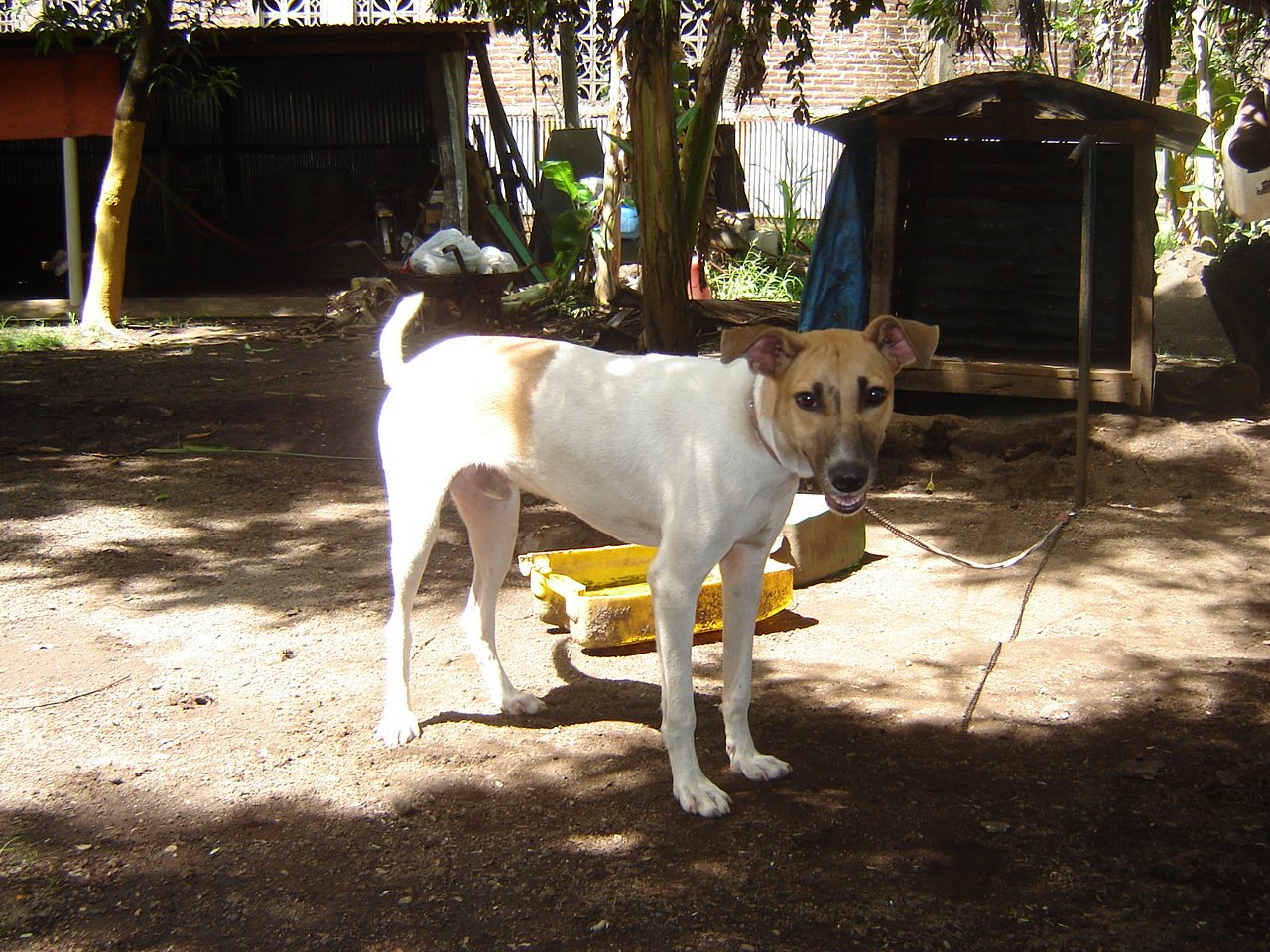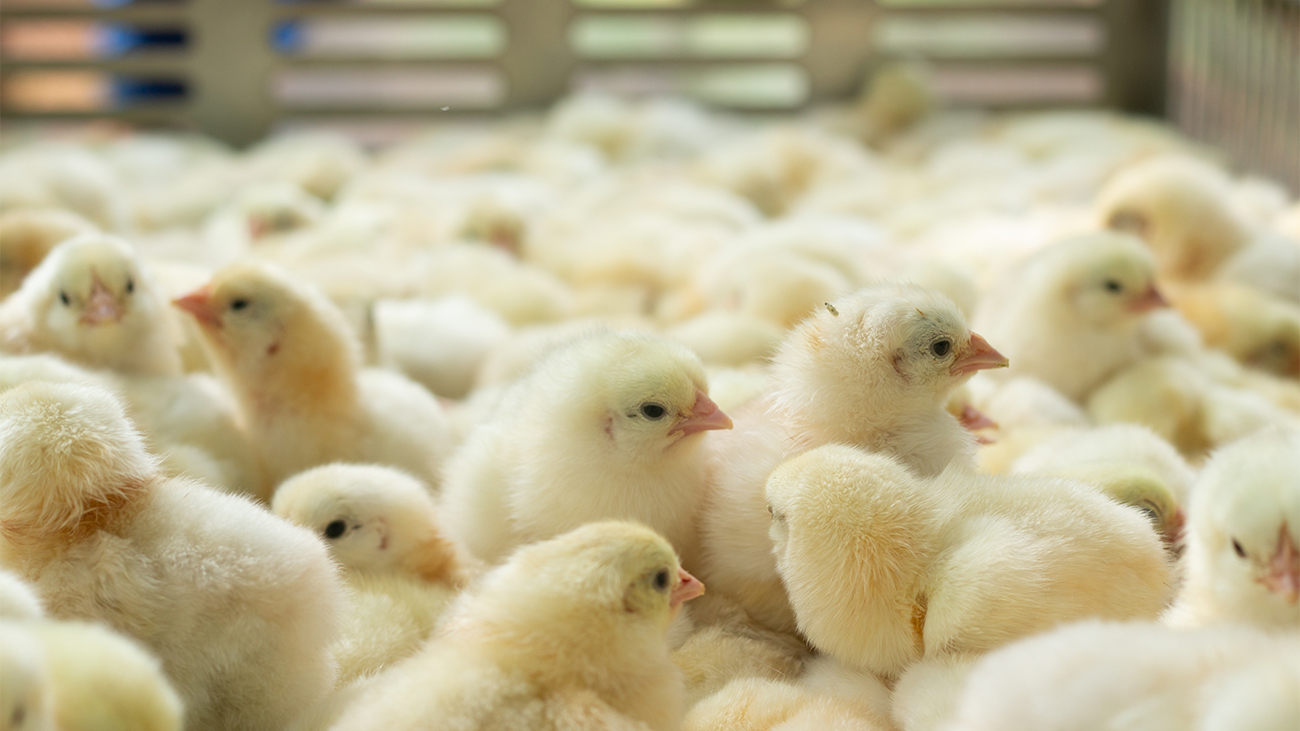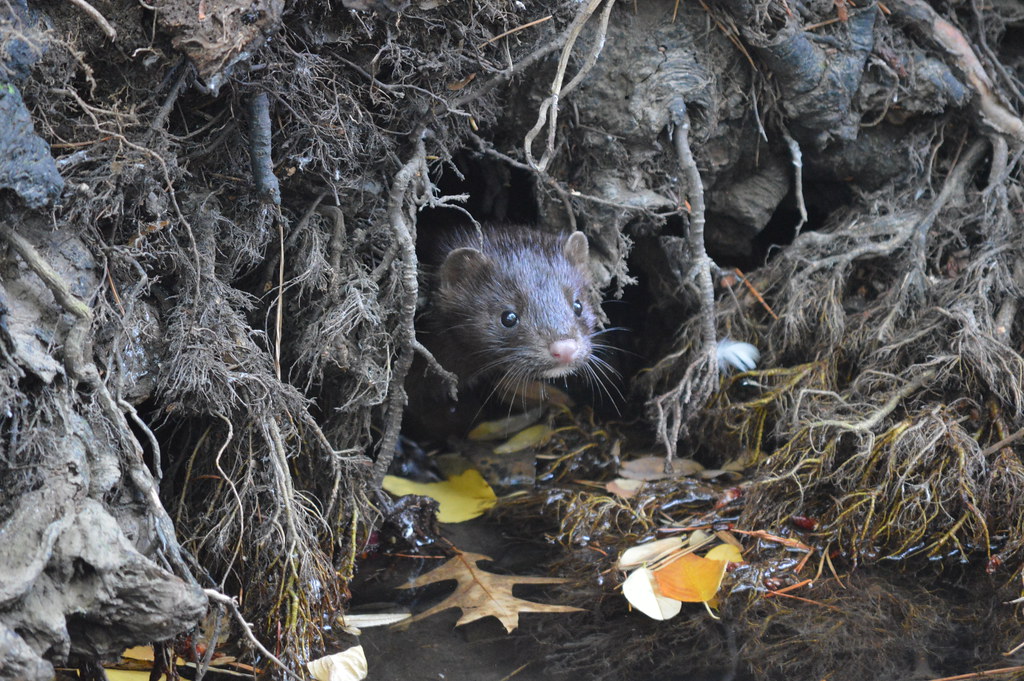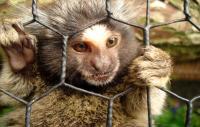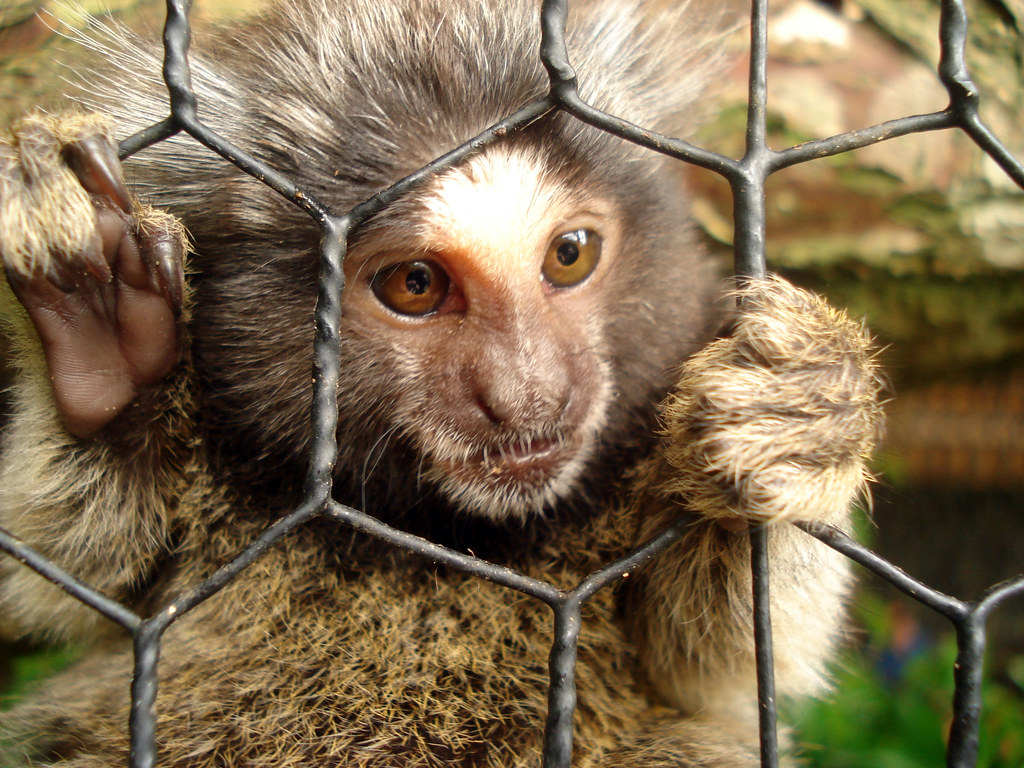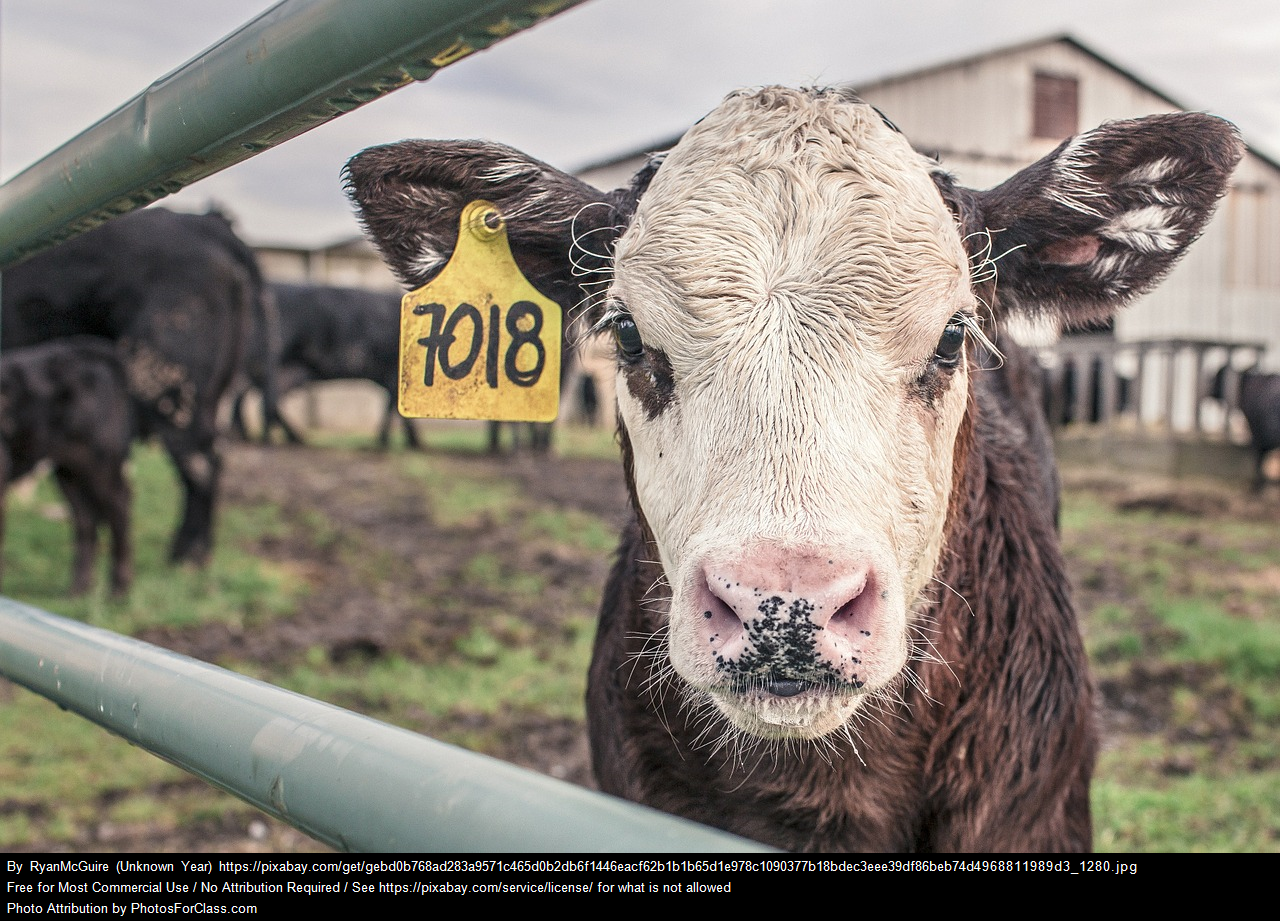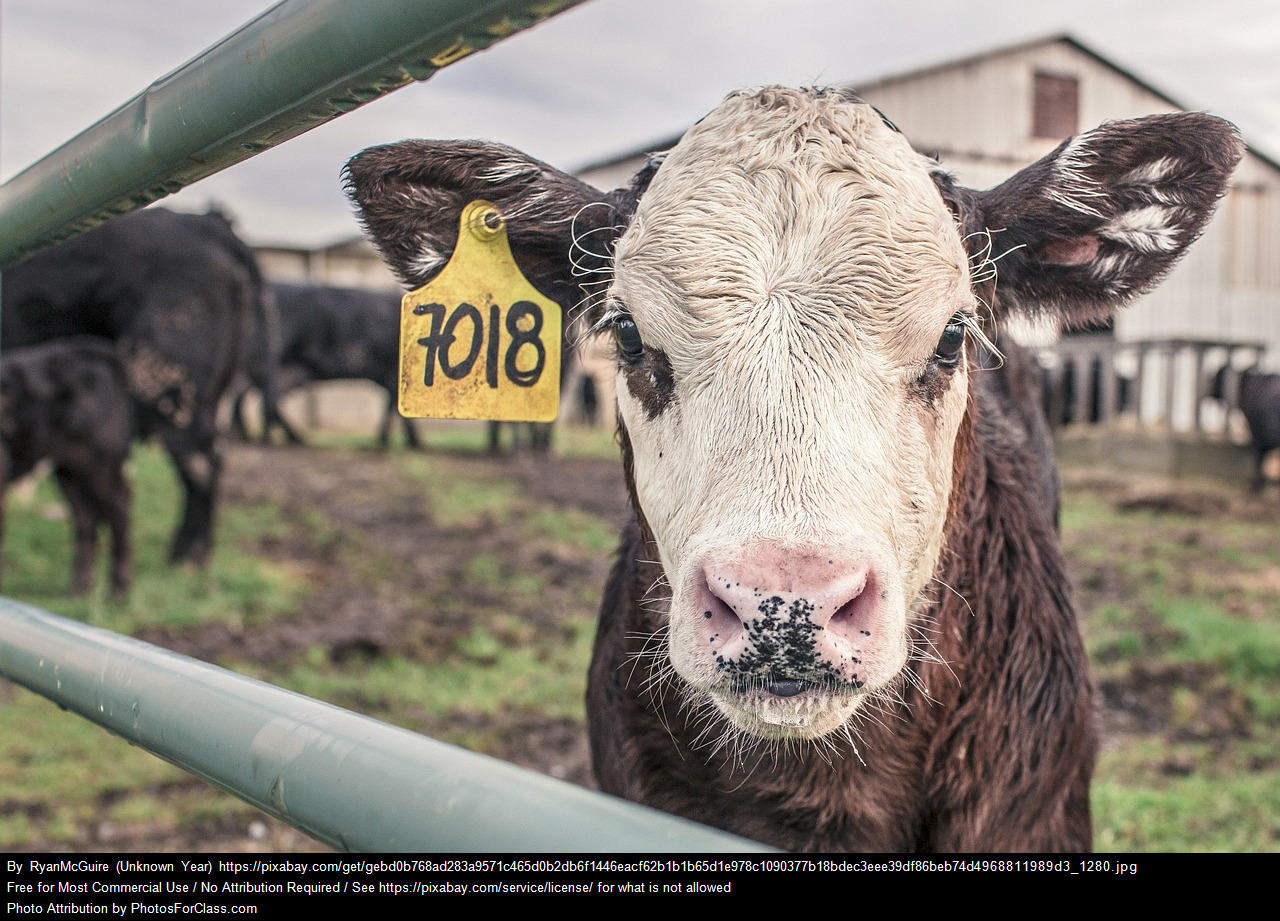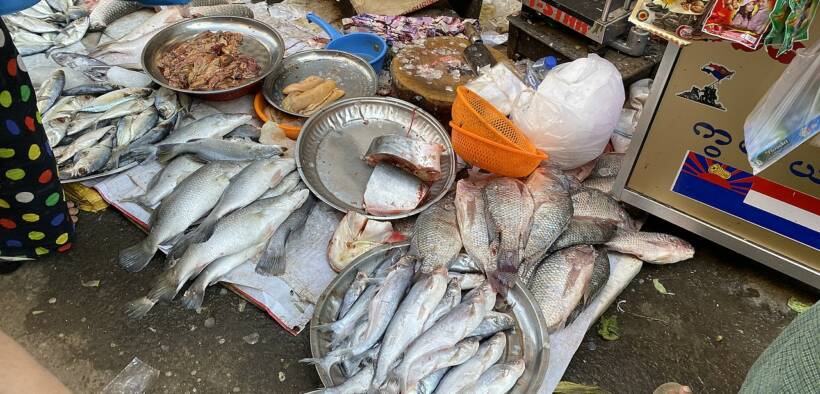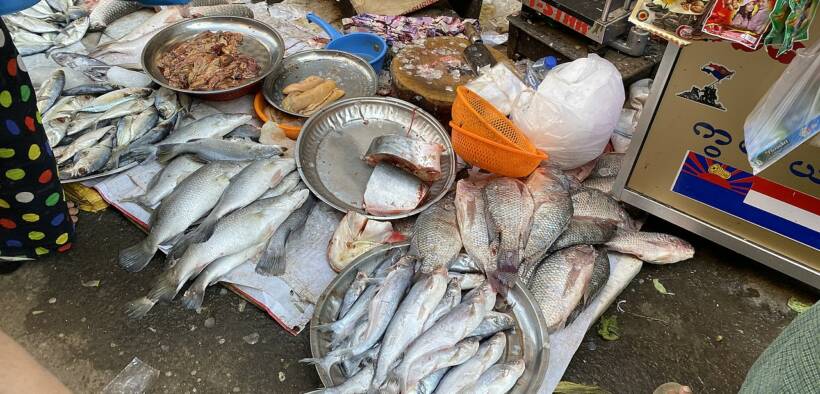
|
Do Massachusetts Anti-Cruelty Laws Go Far Enough?
Even in States with Robust Laws, People May Break Them - How Do We Fix This?
Two recent cases that resulted in animal cruelty charges occurred between January and March in Suffolk County, Massachusetts. One of the cases involved a puppy with injuries documented by veterinary staff at the Massachusetts Society for the Prevention of Cruelty to Animals (MSPCA), while the second case involved video evidence. How common are such incidents in the Commonwealth of Massachusetts? More importantly, what type of sentencing do alleged animal abusers face? Massachusetts Laws Massachusetts has strong laws against all of the following:
How Many Animal Cruelty Cases Happen in Massachusetts Every Year? The MSPCA handles about 3,000 animal cruelty-related complaints yearly, making such cases a crucial task to handle. Between 2012 and 2015, about 50 of these cases were referred to district courts for prosecution. Since 2016, the U.S. Department of Justice Federal Bureau of Investigation has dealt with animal cruelty cases separately in its National Incident Based Reporting System. One of the goals that officials have had since this change occurred was to provide better resources in cases where animal abuse occurs concurrently with child and other domestic abuse. With such cases of abuse occurring simultaneously in many cases, there is an increased need for law enforcement and prosecutors to have the appropriate tools at their disposal. What Types of Sentences Do Animal Abusers Face? Massachusetts animal cruelty laws allow for animal cruelty offenses to be prosecuted as felonies. First offenses may carry sentences of 2 1/2 - 7 years and fines of up to $5,000. Further offenses may carry sentences of up to 10 years and $10,000. In addition to fairly stringent prison sentences and fines, convicted animal abusers also face restrictions on working with or around animals. Legislation has been introduced t the Legislature that would include further restrictions against convicted abusers fostering or adopting. See Something, Say Something As much as everyone hates for it to happen, we might eventually witness something with an animal that requires further investigation. It is essential to know when you might need to report possible animal cruelty and who to report it to. Although larger national organizations often come to mind, these groups have no local jurisdiction. They can help refer people to those they need to contact about the suspected cruelty. However, you might lose valuable time reporting the cruelty to someone non-local. The MSPCA can investigate suspected animal cruelty anywhere in Massachusetts. Additionally, you can report what you see or hear to your city or town police department. Document everything about the incident, including photos or videos if possible. If the offender's identity is known, be sure to provide this information. Otherwise, provide a detailed description of the person, their clothing, the location, and vehicle, if applicable.
*** AJ Demers is a freelance content writer who also blogs at AJ the Irish Lass' Ramblings. Dogs in need of rescue are one of her passions and she networks dogs at some of the highest-intake shelters on Facebook. Living in Texas and seeing the rescue situation in the Permian Basin firsthand has helped her see what awesome people rescuers can be. AJ is a lifelong dog owner who also loves anthropology, jewelry/rosary-making, and good thriller novels. The opinions expressed are solely the author's and do not reflect the opinions and beliefs of the website or its affiliates. Will the Safe Outdoor Dogs Act Change Things for Texas Dogs?
Advocates remain hopeful, despite continued challenges
When people treat steps taken to protect animal welfare as some type of infringement on their rights as dog owners, it’s the dogs who stand the most to lose. The Safe Outdoor Dogs Act went into effect on January 18, 2022, in what was seen as a step towards better living conditions for Texas dogs. Whether this will lead to better conditions for dogs overall remains to be seen, but for advocates, the law is a clear victory. Some critics of this new law, while not opposed to protection for outside dogs, feel that such actions are meaningless without better enforcement of existing laws. Many dog owners whose dogs are breeds that enjoy being outside a lot during the cold weather, but have access to shelter, wrongfully interpreted this law as targeting their pets. However, advocates feel that this is an important distinction that people who love dogs need to make for its impact to be felt. For example, too many dog lovers in and outside Texas were horrified to hear of the dog that froze to death in Grapeland during the February 2021 winter storm. Animal advocates in Texas have long demanded better protection to prevent these types of things from continually happening. State laws are the avenue of choice in the absence of local protections. Many local city and county ordinances, when present, are inadequate to provide protection for one simple reason. Texas counties often cover large geographic areas, with relatively few officers to investigate complaints and handle citations. Even in urban settings, getting involvement from Animal Control can be a drawn-out process. For example, one case in the Permian Basin that involved dogs chained without access to shelter involved multiple pleas to the local police department over the course of several months. Although the advocate finally succeeded in getting them removed from the situation, she had to work tirelessly to do so. Had this law been in effect at that time, the police may have been more willing to step up sooner. Texas Humane Legislation Network, along with affiliates in 12 metro areas in Texas, immediately took action to make proper restraints and shelter available for outside dogs. Some of the organizations that stopped up to the plate included Fix West Texas, SPCA of Texas, and South Texas Tales. These organizations all have strong and growing local support networks to help them carry out this important work. Humane legislation in Texas has had bipartisan support. For example, the sponsors of the Safe Outdoor Dogs Act were Eddie Lucio, a Democrat, and Jared Patterson, a Republican. Where a bill can have sponsors from both sides of the aisle and pass, many see this as a sign that there is hope to bring about better humane protections in Texas. Animal advocates hope that a show of support from both parties will result in seeing animal welfare as a Texas issue, not specifically a Democrat or Republican issue. If humane legislation can be seen as such, there is less likely to be a lot of political gridlock. Overall, the dogs and other animals stand to benefit from better protection. *** AJ Demers is a freelance content writer who also blogs at AJ the Irish Lass' Ramblings. Dogs in need of rescue are one of her passions and she networks dogs at some of the highest-intake shelters on Facebook. Living in Texas and seeing the rescue situation in the Permian Basin firsthand has helped her see what awesome people rescuers can be. AJ is a lifelong dog owner who also loves anthropology, jewelry/rosary-making, and good thriller novels. The opinions expressed are solely the author's and do not reflect the opinions and beliefs of the website or its affiliates. Republished under Creative Commons license. Originally published by . Original article may be found by clicking here. Germany Bans Killing of Male Chicks
Chirping to their death
The German government has approved a law that will ban the culling (killing) of male chicks effective January 1, 2022. For the uninitiated, first a summary of Egg 101, the University course you never attended. When a chicken lays a fertilized egg there is a 50% chance that egg will lead to a male chicken, of course. The eggs that are eaten are laid by chickens when they are NOT pregnant. Once impregnated, those eggs are to grow into full size chickens that will then lay more eggs for us to eat at breakfast. Unable to lay eggs, the male chicks of egg-laying breeds are considered useless. What about the colonels fried chicken recipe you ask? Well male chickens are not meaty enough, plump enough to let grow to full maturity, commercially not viable. So what do they do with the male chicks? They dump them live and chirping into a macerator on the first day of their lives. What's a macerator? It's a giant metal grinder, like your food processor except worse. It makes mincemeat of live baby chicks in seconds. Every year, up to 300 million male chicks, just hours old, are killed in the United States and as many as 7 billion chicks globally. Germany killed an estimated 45 million male chicks last year alone. Europeans became aware of their inhumanity in 2019 when both France and Germany announced they would make moves to make the practice illegal. German agriculture minister Julia Klöckner marked the new law “a significant step forward for animal welfare.” She added: “We have invested millions of euros in alternatives, bringing animal welfare and economic efficiency together on German soil.” Germany is counting on new technology that will allow farmers to determine the sex of an egg days before hatching. But as part of the new law in Germany, the sex identification of embryos will only be permitted up to day six. This comes into effect from 2024. These measures have been imposed after research established that chickens are sentient after their sixth day in the egg. How ironic that the country best known for gassing humans in World War II is now the first country on the planet to outlaw this inhumane practice on little chicks. “France and Germany should be the European motor to advance on this issue. Nothing will be like it was before.” said France's Agriculture Minister Didier Guillaume. Of course German farmers complained that this will add to their costs and make their product less competitive. The exact same arguments every other country has cried. And what about the great United States of America? Are we also on the precipice of doing away with such barbaric practice? The answer, sadly, is a great big NO! US Department of Agriculture is controlled by big agra. There is not a drop of humanity or kindness in them. The chances that such a law as in Germany and France will pass DC is less than the chances you will see todays dead man walking tomorrow. The practice of chick culling is kept well out of the public eye. Mainstream media always tows the line by not reporting on it and the farmers just keep on feeding the macerator with gentle fuzzy little chicks, all happy to have come alive chirping their way to oblivion. If after reading this article you still have the stomach to learn more click here. The opinions expressed are solely the author's and do not reflect the opinions and beliefs of the website or its affiliates. Italy Bans Fur Farming and Shuts Down All Mink Farms
Becomes 16th European country to do so
Mink by Willamette Biology
There was a time when Hollywood socialites strolled down Rodeo Drive in mink coats, showing off their wealth. As well in films it was no surprise to see Greta Garbo and Marlene Dietrich going to a ritzy evening event in fur. Thankfully those days have come to an end. Italy's Senate just voted to ban all fur farming, going even further they also banned all breeding of mink, foxes, raccoon dogs and chinchillas, according to Humane Society International. Fur has been falling out of favor in the fashion world, with major brands like GUCCI, Prada, Valentino and Versace banning the use of fur in their collections, and large retailers like Saks Fifth Avenue and Macy’s no longer selling fur. The effort was led by Humane Society International/Europe via a report they prepared for the Italian Parliament making titled, Mink breeding in Italy: Mapping and future perspectives that made the argument for closing fur farms and converting them into businesses that are humane and sustainable. Italy now becomes the 16th European country to ban fur farming. Slowly but surely ethics, humanity and plain good sense are pervading Europe. While a county of 60 million celebrates this day in New York City, we shudder at the gutless NYC Council members that averted and skirted a vote on this very same issue last year. Under tremendous pressure from the few fur retailers and farmers remaining, the cowardly council members held public hearings. Hearings where hundreds of citizens spoke in favor of the measure. Then the relevant committee went into hiding, not holding a vote until the legislative season concluded, in essence saying "sorry now you have to start all over again". Gutless, cowardly and shamefully derelict of their elected duties. The Italian amendment requires all active fur farms in Italy be closed by June 30, 2022. To help ease the transition, fur farmers will be compensated €3 million by the Ministry of Agriculture in 2022, reported VegNews. “In thirty years of animal rights battle this is the best victory. Finally, a parliamentary vote sanctions the end of unspeakable suffering inflicted on animals only in the name of profit and vanity,” remarked Hon. Michela Vittoria Brambilla, president of the Parliamentary Intergroup for Animal Rights in Italy, according to the Greek Reporter. “It is a great achievement, which finally all those who love and respect animals rejoice!” Brambilla added, as Humane Society International reported. What is wrong with the U.S.? Why is it so hard to do decent things here? Why is there even an argument about the use of fur and the horrors it entails? When will we see a kinder, gentler America? The opinions expressed are solely the author's and do not reflect the opinions and beliefs of the website or its affiliates. New Jersey Bans Sale of Cosmetics Tested on Animals
The state responds to public outcry
Rabbits and beagles are prime experimentation animals
With the swish of his pen on November 8th, Mr. Murphy ended the untold suffering of hundreds of animals a year, for Mr. Murphy is the Governor of New Jersey! S1726 was written into law on that day after passing UNANIMOUSLY both the state Senate and the Assembly. The bill forbids all animal testing for cosmetics in the state going into effect in March 2022. The efforts had been in the works since February 2020, introduced then by state Senators Joseph Lagana and Nellie Pou. The law actually states 'Furthermore, alternative testing methods, such as the use of engineered human tissue and the use of computer models, are often cheaper and more accurate than animal testing, in addition to being cruelty-free.' Additionally it says 'Animal tests for cosmetics are frequently painful and harmful to the animals'. New Jersey now becomes the eighth state with similar bans, California, Hawaii, Illinois, Maine, Maryland, Nevada, New Jersey and Virginia have all banned testing of cosmetics on animals. Vicki Katrinak, director of Animal Research and Testing at The Humane Society applauded the states move saying 'With a growing number of non-animal test methods available, there is no ethical justification to continue harming animals for the sake of shampoo, mascara, or aftershave. Thank you to Assemblyman Verrelli and Senator Lagana for their leadership on this bill and Governor Murphy for signing this important bipartisan legislation.' Sadly cosmetic testing is typically carried out on the most servile and docile animals, because they won't fight back. Rabbits and beagles are prime candidates. This sort of progress happens in a democracy only when there is broad public support for an issue. Recent surveys have indicated huge backing by the citizenry for ending this horrid practice. A 2019 study by Cruelty Free International showed that 79% of respondents supported cruelty-free practices. Another survey from The Humane Society of the U.S. found that over 67% of respondents want an end to animal testing and would prefer researchers to find alternatives to testing cosmetics and other personal care products. When miracles like this occur one wonders why it has taken so long for the public to recognize the indefensibility of our actions. And one is also allowed to wonder where all the other so called 'progressive' states are, such as New York and Massachusetts. In any case it was a good day for humanity and for the most harmless and kind of animals. The opinions expressed are solely the author's and do not reflect the opinions and beliefs of the website or its affiliates. Spain Enacts Law Making Animals Sentient Beings
Far reaching law empowers all animals
In a momentous vote last Thursday Spain's lower house of Parliament gave final approval to a law giving all animals, domesticated or wild, the status of 'sentient being'. It was an effort four years in the making. First introduced in 2017 the bill languished due to the two general elections Spain held in 2019. Finally, with the Socialist (PSOE) party leading, they were able to get the law passed by the Senate in September and the lower house this week. Interestingly only the far right Vox party opposed the bill. The new law modifies and codifies Spain's Civil Code which covers issues relating to property, family and obligations. Now all parties must not only look at how per example a divorce affects the welfare of the children but also the welfare and interests of any animals. This is a milestone in accepting the special role animals play in our daily lives. Guillermo Díaz, from the center-right Ciudadanos (Citizens Party), defended the law. “We are the only species that recognizes the suffering of others and as such we have an obligation to prevent that suffering,” he said, explaining that up until now, “animals were not considered different from a television” in divorce cases. We remember an effort by this organization to bring some justice to the rights of animals some years back. We were flatly turned down by US courts as lacking 'standing', meaning in essence that the animals would have to bring the action themselves. The judges knew very well that animals are unable to represent themselves in court and thus shut the door with a nonsensical ruling. Much of European law follows the outlines of the one just passed in Spain. It seems Europe has far outpaced the United States, in actuality the entire world, in compassion and human kindness. It's 'human' policies thwart wealth for the sake of more wealth while giving as much as possible to the people. They spend 1.5% of GDP on the military and death while we are asked to outlay 5.2%. In 1999 the EU blocked the imports of meat products from the US that were from animals fed antibiotics, again to protect their people. They now have started to look at animals not as mere furniture in the décor of life but as key ingredients in a complex soup of living. We can't envision a day when a law much like the one just enacted in Spain will pass the US Congress and be signed by the President. Neither party cares much for animals, it seems the GOP does not even care much for humans. How did we end up in this place, devoid of conscience, lacking nobility just empty suits full of money. Most of Spain’s congressional parties, welcomed the law’s approval. “It’s a moral victory in a country where 200,000 animals are abandoned each year,” said Juantxo López de Uralde, from the Unidas Podemos Party. “Those who are violent against animals are potentially violent against humans as well,” followed Sonia Guaita, from the PSOE stating that similar legislation existed in most European countries. Tellingly the only party opposing the effort was the far right Vox, denigrating it as “insanity, nonsense, stupidity. It humanizes animals and dehumanizes man.” Now there is a party Donald Trump would be proud of! The opinions expressed are solely the author's and do not reflect the opinions and beliefs of the website or its affiliates. Key Animal Bills in New York Signed Into Law
Protection for animal owners and the punishment of abusers enacted
Governor Hochul speaking to interested groups
"To own a pet is a blessing and we owe it to the animals of New York to keep them safe and healthy, Dogs of all breeds deserve loving homes and no one should have to fear losing their insurance coverage based on the dog they own. In the same vein, veterinarians who see signs of abuse in their patients should be safeguarded so they can report said abuse to the proper authorities. I am proud to sign these bills into law to ensure the wellbeing of pets across the state." With that and a stoke of her magic pen New York State governor Kathy Hochul signed into law S.4254/A.4075 and S.5023A/A.5823-A. The first of the two bills prohibits unsavory increases in insurance premiums for home owners and renter’s based solely on the breed of a dog. Therefore, if you have a Siberian Husky and want insurance for your rental property, you now can’t be charged an increased premium due to the breed of the dog. The second bill attacks what many have considered the underbelly of animal cruelty. The people most likely to see the footprints of such cruelty are veterinarians. However to date there were no provisions to protect the identity of the veterinarian from vengeful reactions. The new law mandates all vets in New York State to report all cases of possible animal cruelty to the authorities for investigation. Furthermore it ensures the confidentiality of the reporting veterinarian thus avoiding recrimination. Assemblyman Linda Rosenthal, a champion of animal rights in New York for many years said “Violence against animals is often predictive of violence against people, particularly domestic violence, and it is vital that we do everything we can to root out both. Putting a halt to animal cruelty at the first sign will help protect both pets and people from future harm. Veterinarians are uniquely positioned to spot signs of animal abuse, and with this new law, they will be better able to aid in the fight against animal cruelty. I thank Governor Hochul for signing this critical piece of animal protection legislation into law.” While on the surface these may seem tepid steps against a gargantuan animal problem, success in this arena comes at glacier pace. Both bills address different issues from good and rational perspectives. The latter bill regarding veterinarians will certainly put many more animal abusers in jail and off the streets over the coming years! New York, the third largest state in the Union, is moving progressively towards becoming an animal friendly state. Joining California, the two giant states hope to be the leaders of the movement as the nation moves towards the more humane and constructive treatment of the animals we are given charge of. The opinions expressed are solely the author's and do not reflect the opinions and beliefs of the website or its affiliates. Republicans Plan to Overturn All Animal Protections With One Law
EATS Act Will Wipe out All Animal Farming Regulations in the Nation
On August 5, 2021 senators Marshall, Grassley, Ernst, Cornyn, and Hyde-Smith, all from deep red states, all solid Republicans, introduced senate bill S. 2619 (IS) - Exposing Agricultural Trade Suppression Act (EATS). As innocuous sounding as the title may be, this is another overt attempt by the GOP to thwart any attempts at bringing a moniker of decency to the plight of America's farm animals. The bill aims to "prevent States and local jurisdictions from interfering with the production and distribution of agricultural products in interstate commerce." The EATS Act would grant a private right of action allowing affected persons to seek an injunction against any state or local regulation that imposes a production or manufacturing standard on agricultural products that is more restrictive than a standard at the federal level. Modeled after Texas's restrictive abortion law, it empowers individuals to sue the state or locality that requires animal farming regulations more restrictive than a federal standard established. Here is the absolute fiendishness of the act, as there are almost no federal standards concerning animal farming agriculture, the bill will in one fell swoop wipe out each and every regulation that has been set by every state and municipality throughout the nation! Just read that sentence one more time for it to sink deeper into your consciousness. The EATS Act is intended to invalidate California?s Proposition 12. Proposition 12 establishes minimum confinement standards for certain farm animals and bans the sale of food products from animals that are not raised in compliance with the standards, which subjects out-of-state food manufacturers selling products into California to Proposition 12. Several legal challenges questioning its constitutionality were already filed against the proposition by the animal farming and meat industries. They were all dully dismissed by the courts. The rulings raised alarms in GOP circles; that states would be able to legislate the treatment of farm animals. Thus this cabal of right wing republicans got together and decided to kill the beast with a single draw. The lives of farm animals makes for a chapter straight out of Dante's Inferno. Without elaborating too much, be it said that our treatment of these poor and harmless creatures draws from the deepest evils embedded in the human soul. With the federal government held at bay via the senate filibuster rule and the complete lack of any conscience by elected republicans, the heavy lifting in the arena has been done by the states. Now the GOP has decided enough is enough, they will try and kill all regulations in the nation with this one action. We can only hope and pray the Democratic Party will stay true to the animals and block the EATS act in its tracks. Please oppose the EATS act as best you can, especially if you live in one of the states of the aforementioned several senators. Maybe the GOP should change its name to the Cruel and Heartless Party! The opinions expressed are solely the author's and do not reflect the opinions and beliefs of the website or its affiliates. Social media is reducing climate change debates to your views on veganism
Climate change is here and it will affect your eating habits
Online debates over the environmental impact of eating meat are getting heated
Ten years ago, when we ranked the most controversial articles on Wikipedia, George W. Bush was at the top of the list with global warming at number five. The article on global warming has now been re-titled as climate change, but this remains among the most polarising issues of our time – and one frequently debated on social media. This might seem like it’s due to the way climate change is often presented primarily as a political issue: something you can choose whether or not to support. But perhaps it’s as much a result of the way social media works. Our recent research shows that polarisation on social media is mathematically inevitable. What’s more, this polarisation is allowing online discussions about climate change to be overridden by culturally-focused arguments about things like diet. This appears to be further cementing the idea that climate change is a matter of ideology, making it harder to convince people to support action to tackle it. The fact that it’s so easy to unfriend or unfollow people you disagree with on social media has accelerated the formation of online echo chambers to the extent that even an algorithmic tool designed to break the bubbles won’t be able to help. We bring the expertise of academics to the public. An example of this relates to the UK bakery chain Greggs’ vegan sausage roll, which ignited days of social media turmoil when it was introduced to the UK in January 2019 to coincide with Veganuary, a month-long UK-based charity campaign designed to encourage veganism. Veganuary-oriented social media discussions that year were dominated by arguments over the sausage roll’s relative merits. To understand the extent of this interference, we analysed about half a million tweets posted between 28 December 2018 and 28 January 2019 containing any of the hashtags “#vegan”, “#veganuary” and “#veganuary2019” to map out the prevalence of extreme opinions among the tweets. Around 30% of the tweets we analysed were firmly pro-vegan, while 20% of tweets used Veganuary-related hashtags to express their protest against veganism. More importantly, many Twitter users who tweeted about Veganuary explicitly said if it wasn’t for the Greggs story, they wouldn’t have gotten involved. On one hand, bringing extra attention to the campaign might be considered a blessing. On the other, the polarised nature of online arguments disproportionately focused on the issue of the vegan sausage roll. This shifted what could have been a fruitful and logical discussion around the pros and cons of veganism towards unproductive fights centred around perceived threats to people’s identities tied up with what they do or don’t eat and what that means. Many quickly took sides, refusing to engage in conversation and instead attacking the personal qualities or intelligence of the “other side”. This conflict surfaced again on social media a few months later, when the Intergovernmental Panel on Climate Change (IPCC), a UN-endorsed organisation, published its Special Report on Climate Change and Land in August 2019. In order to gauge the level of public engagement with the report, we collected all tweets sent in August 2019 which contained the phrase “IPCC”. We then used software to analyse the content of some 6,000 tweets in English in order to extract the main topics of discussion. We found that not only were a large portion of the tweets in response to the IPCC report specifically about diet, but these tweets contained the most toxic and polarised language in the sample. This is even more surprising when considering that diet was only mentioned briefly in the original IPCC report, without any explicit recommendations about meat or dairy consumption. Evidence like this suggests that diet and cooking are now forming the core of a new culture war around climate. This could be catastrophic for climate action. Politicians and policy makers traditionally tend to avoid issues that are culturally controversial, and polarisation of public opinion has been shown to weaken politicians’ accountability when it comes to making major decisions. A map of Twitter users and those they retweet, from our Veganuary dataset. Author provided Both scientists and science communicators who discuss reports like that produced by the IPCC must understand, and anticipate, the likelihood of emotionally charged, potentially negative responses to such polarising issues as climate change – as well as specific areas of polarisation, such as diet, that are currently more popular. This way, they can work to communicate key information in ways that allow readers to focus on what really matters. *** Taha Yasseri is an Associate Professor at the School of Sociology and a Geary Fellow at the Geary Institute for Public Policy at University College Dublin, Ireland. Formerly he was a Senior Research Fellow in Computational Social Science at the Oxford Internet Institute, a Turing Fellow at the Alan Turing Institute for Data Science, and a Research Fellow in Humanities and Social Sciences at Wolfson College, University of Oxford. Taha Yasseri has interests in analysis of large-scale transactional data and conducting experiments to understand human dynamics, government-society interactions, mass collaboration and collective intelligence, information and opinion dynamics, collective behaviour, and online dating. The opinions expressed are solely the author's and do not reflect the opinions and beliefs of the website or its affiliates. Republished under Creative Commons license. Originally published by The Conversation. Original article may be found by clicking here. As Bad as It Gets
Jeffrey Nally goes from nasty to bad to worse
Jeffrey Nally Jr
In 2011, there was a news story about Jeffrey Nally Jr., a young man from New Cumberland, West Virginia, who’d been arrested for obtaining dogs from “Free to Good Home” ads and then torturing the animals to death. Many of the victims were puppies. When police were tipped off, they found the remains of 29 dogs and a cat on his property, as well as an eyewitness, because he'd been holding his girlfriend captive and terrorizing her. Fortunately, the prosecutor in the case, Jim Davis, is a dog lover and really cared. He worked tirelessly to be the voice for Nally’s helpless and innocent victims, and with some help from the Animal Legal Defense Fund, was able to have the man sentenced to 10-45 years in prison. A sentence that’s almost unheard of in animal cruelty cases. That fact didn't get past Nally, who brought an action against Davis and Judge Jason Cuomo, claiming that 'his Equal Protection rights were violated because he received felony counts for animal cruelty. That others accused of the same crimes have been charged with misdemeanors and/or have received more lenient sentences.' Nally lost that case, and came up for parole in June of 2021, but that bid for early release was also refused. It's nice to think that the petition, letters, and postcards that advocates sent to the West Virginia Parole Board before his hearing helped them to make this decision. Nally's crimes may be unique, in that he was a serial offender, consciously and purposefully seeking out one helpless victim after another, and stated that killing the dogs 'made him feel good.' Penalties and laws against animal abuse have been changing in recent years, and for good reason. Psychiatric and humane professionals agree: animal abusers are five times more likely to move on to commit other violent crimes like assault and murder. In Jeff Nally’s case, he had already served time for domestic assault. Nally poses a danger to others and he should remain behind bars to serve his entire sentence. Now that he's been passed over for parole once, he will be reviewed every two to ten months for the remainder of his sentence. His next hearing is in November of this year -- only a month away! Advocates need to keep the pressure on. That’s why this is a CALL TO ACTION. Here's how you can help: • Sign the petition on Change.org and then share it via your social media. • Write a letter to the WV Division of Corrections parole board asking them to deny Jeffrey Nally early parole. You should address your letter to “Honorable Members of the Parole Board“. Tell them you’d like for them to deny parole for Jeffrey A. Nally, Offender #3507601. He is currently being held at McDowell County Correctional Facility. Ask that Nally be given a “set-off” and be required to serve his full sentence. Tell the parole board why you think Nally is a danger to society, and how you feel about his cruel crimes. Sign your letter and mail it to: Parole Board Neither the offender nor his attorney will see your letter — only the parole board. Personal letters carry the most weight with the parole board, but if you need help, there are sample letters you can copy and paste on the Facebook page JUSTICE FOR 29 PUPS. • If you are an individual or a member of a group who wants postcards to pass out, please send an email to thewoof7@gmail.com with your mailing address and the number of postcards you think you’d be able to get others to sign and mail. • If you are an official of a rescue or humane group who updates your members with emails or a newsletter, please share this article with your readers. • Share this article with your contacts on social media. *** Ariel is an animal advocate who uses her art and writing to advocate for animal welfare legislation and to rally support of tougher laws for animal cruelty The opinions expressed are solely the author's and do not reflect the opinions and beliefs of the website or its affiliates. Live Animal Markets Should Be Closed to Prevent the Next Pandemic
Wet markets are perfect breeding grounds for pathogens that can jump from animals to humans.
Typical photo of a wet market in Yangon, China
The exact origin of the coronavirus called SARS-CoV-2, which started the COVID-19 pandemic, is still unclear. Early reports suggested that the virus jumped from an animal to a human at Wuhan’s Huanan Seafood Wholesale Market, a “wet market” that sells live animals. On March 30, the international team of scientists assembled by the World Health Organization (WHO) published a report of their recent visit to Wuhan to investigate the source of the virus and confirmed the “zoonotic source of SARS-CoV-2.” “Evidence from surveys and targeted studies so far have shown that the coronaviruses most highly related to SARS-CoV-2 are found in bats and pangolins, suggesting that these mammals may be the reservoir of the virus that causes COVID-19,” the WHO report states. “In addition to these findings, the high susceptibility of mink and cats to SARS-CoV- 2 suggests that additional species of animals may act as a potential reservoir. … Several samples from patients with exposure to the Huanan market had identical virus genomes, suggesting that they may have been part of a cluster.” Virologists believe that these sites, which bring together a variety of live animals into close contact with humans, are ideal places for this sort of interspecies viral transmission. In 2002, for example, scientists identified the severe acute respiratory syndrome (SARS) coronavirus in Himalayan palm civets, a small mammal, in wet markets in Shenzhen in southern China. SARS-CoV-2 is a strain of SARS. “While there remains a need for more investigation, we are not surprised about the wildlife origin referenced in the report and we know enough to act now to reduce risks of future zoonotic pandemics,” said Dr. Christian Walzer, chief global veterinarian of the Wildlife Conservation Society, in a press statement. “Some 60 percent of emerging infectious diseases reported globally are zoonoses, causing about 1 billion cases of human illness and millions of deaths every year. Of the more than 30 new human pathogens detected in the last three decades, 75 percent have originated in animals. Importantly, research has shown zoonotic-origin pathogens increase along the supply chain from source to market.” Wet markets are “unique epicenters for transmission of potential viral pathogens, [where] new genes may be acquired or existing genes modified through various mechanisms such as genetic reassortment, recombination and mutation,” according to a paper written by a team of microbiologists from the University of Hong Kong and published in the journal Current Opinion in Infectious Diseases in 2006. They add that these markets, “at closer proximity to humans, with high viral burden or strains of higher transmission efficiency, facilitate transmission of the viruses to humans.” “Once you walk into one of these places, it’s quite obvious why they’re called wet markets,” said Jason Beaubien, NPR’s global health and development correspondent, on the radio station’s “Morning Edition” show last year. “Live fish in open tubs are splashing water all over the place. The countertops of the stalls are red with blood as fish are gutted and filleted right in front of the customers’ eyes. There are live turtles and crustaceans climbing over each other in boxes. Melting ice adds to the slush on the floor. So things are wet.” In January, Rep. Mike Quigley (D-IL) and Fred Upton (R-MI) reintroduced bipartisan legislation to address the public health risks posed by wildlife markets, called the Preventing Future Pandemics Act (H.R. 151). The bill “prohibits importing, exporting, purchasing, or selling live wild animals in the United States for human consumption as food or medicine.” It also directs the Department of the Interior to “hire, train, and deploy at least 50 new U.S. Fish and Wildlife Service law enforcement attachés around the world.” Additionally, the bill obliges the United States to work with other members of the United Nations toward instituting a global ban on commercial wildlife markets and enforcement of wildlife trafficking laws. A companion bill, S. 37, was introduced into the Senate by Senators Cory Booker (D-NJ) and John Cornyn (R-TX). “For the sake of our health, our economy, and our livelihoods, preventing the next pandemic before it starts is perhaps the most important thing we must do,” said Rep. Quigley. “We were thrilled with the robust, bipartisan support the bill received last year and we’re committed to building on that momentum to see this bill become law.” In addition to their threat to public health, wet markets are sites of extreme pain and suffering for so many animals. “Wild animals sold in commercial wildlife markets endure extreme stress and unsanitary conditions before being slaughtered,” according to the Animal Legal Defense Fund, a nonprofit based in Cotati, California, that works to pass state and federal legislation supporting animal rights. “As the world continues to grapple with COVID-19, our continued exploitation of animals and our environment is fueling the next pandemic. Shutting down commercial wildlife markets—and the international wildlife trade—is critical both to reducing the risk of novel zoonotic disease and animal suffering.” “We must acknowledge the basic tenet that the more we destroy and intrude on nature, the more likely zoonotic spillovers will occur,” said Dr. Walzer. “Zoonotic spillover events and subsequent outbreaks are inevitable, as the interfaces between wildlife and humans increase, primarily due to deforestation and agricultural expansion.” The cruelty to animals witnessed at wet markets points to a deeper, ethical concern about how we view and treat other species. In November 2020, during an interview with Euronews, Jane Goodall, the renowned British primatologist and ethologist, said that “we, in part, brought [COVID-19] on ourselves by our disrespect of nature and our disrespect of animals.” She added, “We push animals into closer contact with humans. We hunt them, eat them, traffic them, sell them as exotic pets around the world, we put them in factory farms in terrible close conditions and all these situations can lead to an environment where a pathogen, like a virus, can jump from an animal to a person, where it may cause a new disease like COVID-19.” *** Reynard Loki is a senior writing fellow and the editor and chief correspondent for Earth | Food | Life, a project of the Independent Media Institute. He previously served as the environment, food and animal rights editor at AlterNet and as a reporter for Justmeans/3BL Media covering sustainability and corporate social responsibility. He was named one of FilterBuy?s ?Top 50 Health & Environmental Journalists to Follow in 2016.? His work has been published by Truthout, Salon, BillMoyers.com, EcoWatch and Truthdig, among others. The opinions expressed are solely the author's and do not reflect the opinions and beliefs of the website or its affiliates. Republished under Creative Commons license. Originally published by Citizen Truth. Original article may be found by clicking here. |





